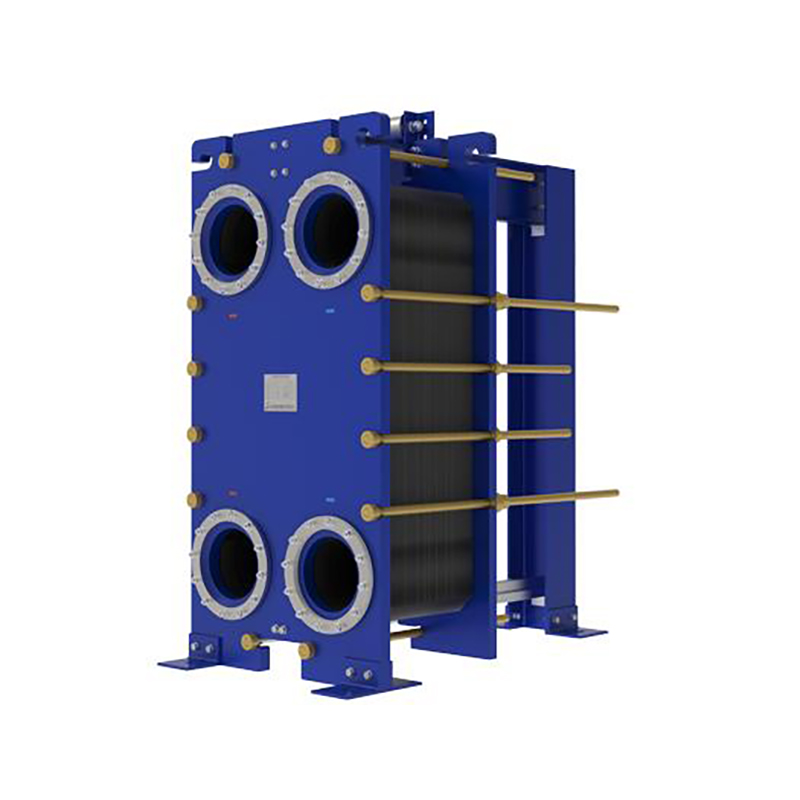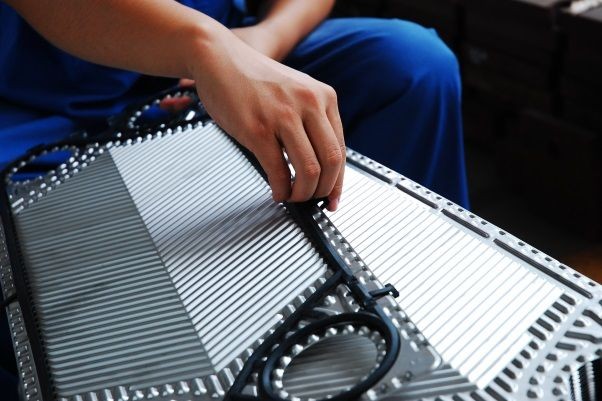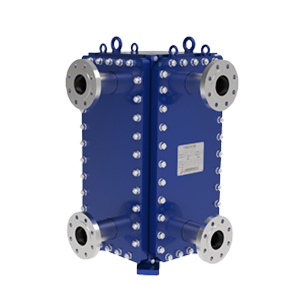5 key roles of plate heat exchanger gaskets.
Plate heat exchanger gaskets perform 5 key roles: ...
More
A lube oil cooler heat exchanger is a critical thermal management device designed to regulate the temperature of lubricating oil in machinery. It functions by transferring excess heat from the hot lubricating oil to a cooler fluid, typically water or air. This process is vital in a wide array of applications, from massive marine diesel engines and industrial gas turbines to hydraulic systems and power generation equipment. The core principle involves a shell and tube or plate and frame design where the hot oil flows on one side and the cooling medium on the other, separated by a conductive metal surface that facilitates efficient heat transfer without the fluids mixing. By maintaining the oil within an optimal temperature range, these heat exchangers prevent the oil from degrading, losing its viscosity, and forming harmful sludge or varnish. This is not merely a component for efficiency; it is a fundamental requirement for protecting expensive capital assets from premature wear and catastrophic failure, ensuring operational continuity and safety.
The operational efficacy of a lube oil cooler is paramount for system health. In high-performance engines and compressors, friction generates immense heat, causing oil temperatures to soar. If left unchecked, this heat can rapidly thin the oil, drastically reducing its load-bearing capacity and protective lubricating film. This leads to increased metal-on-metal contact, accelerated component wear (such as bearings, pistons, and crankshafts), and a significantly higher risk of seizure. For instance, in a marine setting, a main engine lube oil cooler must handle flow rates exceeding thousands of liters per minute, cooling oil from temperatures as high as 80-90°C down to a safer 45-55°C range using seawater as a coolant. The design must account for factors like fouling resistance, pressure drop, and material compatibility (often employing admiralty brass, titanium, or stainless steel tubes) to combat corrosion. Data from maintenance reports consistently show that ineffective oil cooling is a primary contributor to unscheduled downtime and expensive overhauls, making the selection of a correctly sized and robust heat exchanger a crucial engineering decision.
The advantages of integrating a high-quality lube oil cooler heat exchanger into a mechanical system are extensive and directly impact operational costs and reliability. The foremost benefit is the profound extension of lubricant life. Oil oxidation rates approximately double for every 10°C increase in temperature above 60°C. By maintaining optimal oil temperature, coolers can more than double the service life of expensive synthetic lubricants, leading to substantial savings on oil purchases and disposal costs. Furthermore, they ensure consistent oil viscosity, which is the most critical property of a lubricant. Stable viscosity guarantees a reliable hydrodynamic film, minimizing friction and wear on critical components like journal bearings and gears. This directly translates to reduced maintenance frequency, lower parts replacement costs, and extended machinery lifespan. For example, in a power plant, a well-functioning turbine lube oil cooler can prevent bearing failures that cost hundreds of thousands of dollars in lost generation and repair expenses.
Beyond protecting the oil and the machine, these heat exchangers significantly enhance overall system efficiency and safety. Cooler oil reduces overall engine operating temperatures, which can improve volumetric efficiency and combustion performance in internal combustion engines. In hydraulic systems, stable oil temperature ensures consistent actuator speed and precise control, which is vital for manufacturing and automation processes. The safety implications are also critical; preventing oil from overheating mitigates fire hazards, especially in environments near high-temperature surfaces. From an environmental standpoint, longer oil life means less waste oil generated, supporting sustainability goals. Modern compact plate heat exchangers offer additional advantages like superior heat transfer coefficients, a smaller footprint, and easier maintenance compared to traditional shell-and-tube models. Real-world operational data from industries like shipping and energy confirm that the return on investment from a premium lube oil cooler is realized through avoided downtime, reduced repair bills, and optimized fuel consumption.
Select the most popular foreign trade service products to meet your diverse needs
Learn more about the dynamics and professional knowledge of the foreign trade industry

Plate heat exchanger gaskets perform 5 key roles: ...
More
API 662 defines standards for plate heat exchanger...
More
A gasket in heat exchanger seals surfaces, blocks ...
More
Compare top frame plate heat exchanger models for ...
More
User reviews show the american standard heat excha...
More
You can see clear differences between welded block...
MoreSelect the most popular foreign trade service products to meet your diverse needs
Explore more content related to foreign trade services

User Comments
Service Experience Sharing from Real Customers
Michael Chen
Maintenance EngineerThis lube oil cooler heat exchanger is incredibly efficient and robust. It dropped our operating temperatures significantly and has been running flawlessly for months with zero maintenance. A fantastic upgrade for our critical machinery.
Sarah Johnson
Plant ManagerWe installed this on our main turbine and the performance is exceptional. The build quality is superior, installation was straightforward, and it handles the thermal load much better than our previous unit. Highly reliable and effective.
David Rodriguez
HVAC TechnicianA very well-made heat exchanger. It integrated perfectly into our large building's climate control system for the machinery room. It's durable and does its job well. Took off one star because the mounting brackets could be more versatile.
Emily Wang
Chief EngineerOutstanding product. The thermal efficiency of this cooler has directly improved our compressor's performance and longevity. It's built to last with high-quality materials. The ROI was evident within the first quarter of use.